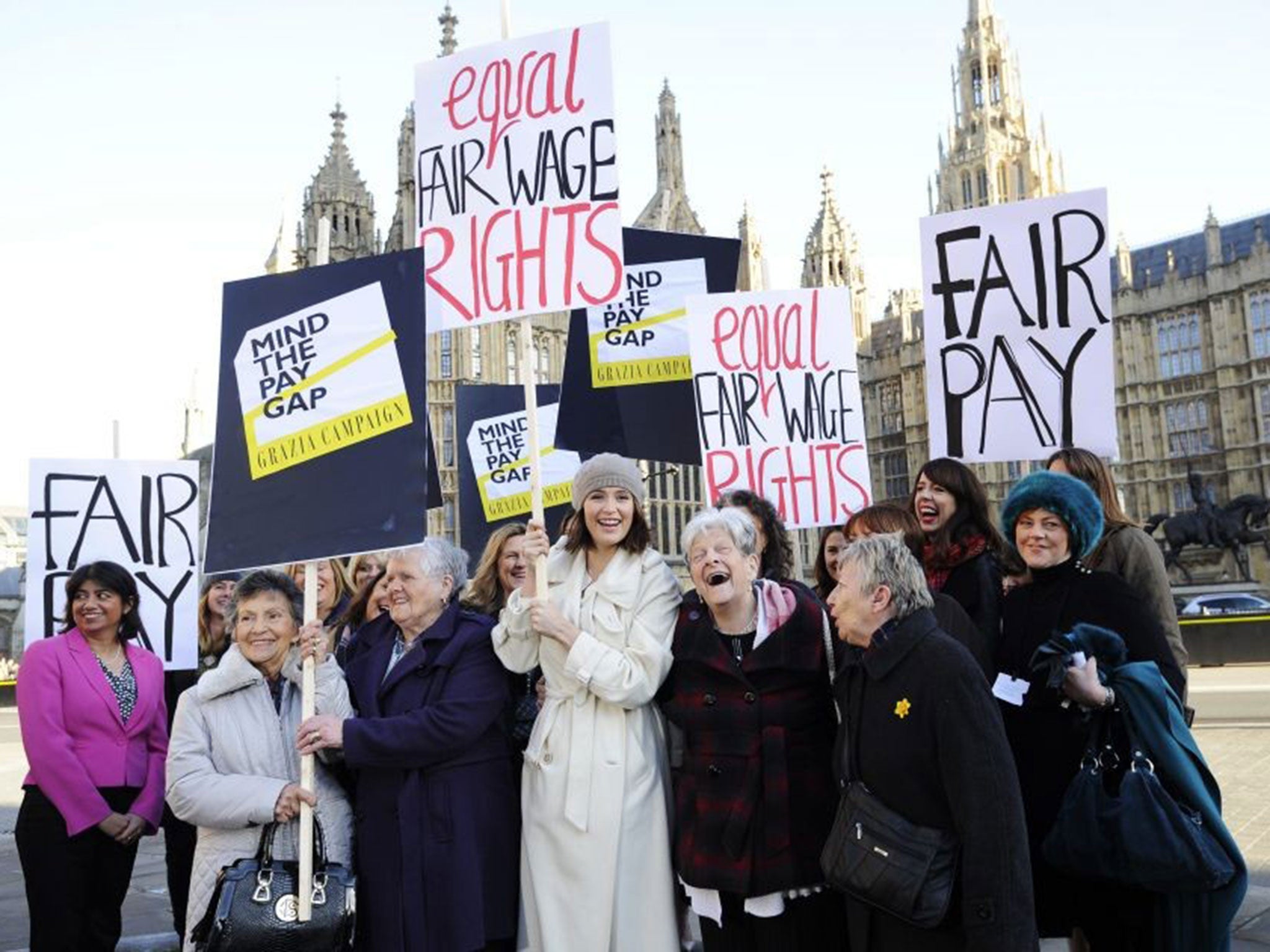Gender pay gap: Businesses must publish bonuses as part of transparency measures to end pay inequality
The Government has announced the requirement will also be extended to the public sector

Your support helps us to tell the story
From reproductive rights to climate change to Big Tech, The Independent is on the ground when the story is developing. Whether it's investigating the financials of Elon Musk's pro-Trump PAC or producing our latest documentary, 'The A Word', which shines a light on the American women fighting for reproductive rights, we know how important it is to parse out the facts from the messaging.
At such a critical moment in US history, we need reporters on the ground. Your donation allows us to keep sending journalists to speak to both sides of the story.
The Independent is trusted by Americans across the entire political spectrum. And unlike many other quality news outlets, we choose not to lock Americans out of our reporting and analysis with paywalls. We believe quality journalism should be available to everyone, paid for by those who can afford it.
Your support makes all the difference.Businesses must now publish details of employees’ bonuses as part of David Cameron’s plan to “name and shame” the companies that pay men more than women.
The Prime Minister announced in July that businesses with more than 250 staff will be forced to publish the difference in salaries between male and female employees in an effort to “end the gender pay gap in a generation”.
Now businesses must include details of the bonuses paid to staff, a requirement that will also be extended to the public sector.
The new transparency measures have been created in an effort to close the UK’s pay gap, where women earn on average 19.1 per cent less than men - a reality that Mr Cameron described as a “standing rebuke to our country”.
The measures, which were legislated for by Labour in 2010 but were blocked from implementation by the Conservatives until this year – will cover more than 10 million workers across the country.
Downing Street said the rule on bonuses is the first of a number of equality-boosting measures that will be set out in the coming days.
But further details on what exactly must be published by firms and when have yet to be revealed, though Downing Street said it would be announced “in due course”.
Women and Equalities Minister Nicky Morgan said the Government also wanted to see women on all boards of FTSE 350 companies once the target of getting women into at least a quarter of boardroom seats in FTSE 100 firms had been met.
Mr Cameron used his high-profile speech to the Conservative conference to highlight how his own daughters could face gender discrimination over pay, telling delegates: "You can't have true opportunity without real equality."
But he has come under pressure from the recently-formed Women's Equality Party (WEP) to translate commitments into concrete action to close a gap of £245 billion a year between the totals earned by each of the sexes.
The leader of the WEP Sophie Walker said it is “good news” that the Conservative Party wants to be seen to tackle gender inequality, “but to actually achieve a change, it needs to try a lot harder”.
Ms Walker has called for “more robust policies than those proposed by the Prime Minister and Women and Equalities Minister”.
“Including bonuses is a welcome step in the right direction but WE are pressing the Government to insist on a detailed audit of pay equality by every company. A few simple figures don’t provide a reliable picture.”
Ms Walker added that a “very small number of people actually receive bonuses,” while “at the other end of the spectrum, women are far more likely to occupy low-paid and insecure jobs, and to live in poverty.”
Chartered Management Institute chief executive Ann Francke said bonuses are where gender bias can easily “creep in” to companies, however.
"One of the biggest drivers of gender pay discrepancy, especially at senior levels, is the bonus gap,” she said.
"The Government's new reporting legislation is a welcome step forward and will be good news for business. Clearer employee data, improved recruitment and a reinvigorated focus on business culture will help unblock the talent pipeline and support more women to become senior managers and leaders."
Additional reporting by Press Association
Join our commenting forum
Join thought-provoking conversations, follow other Independent readers and see their replies
Comments